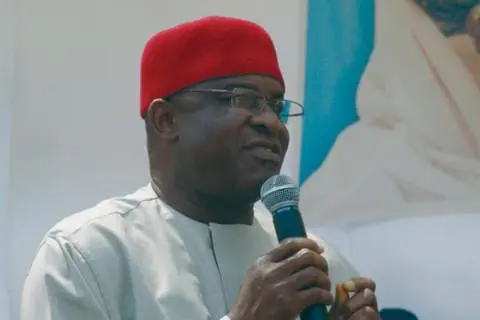Mark slams N/Assembly’s 152 committees as unwieldy
A former Senate president, David Mark, has described the large number of committees in the National Assembly as unwieldy, saying having too many panels would make it difficult for them to function efficiently. There are 152 committees in both chambers of the National Assembly. The Senate has 71 special and standing committees while the House […]

David Mark
A former Senate president, David Mark, has described the large number of committees in the National Assembly as unwieldy, saying having too many panels would make it difficult for them to function efficiently.
There are 152 committees in both chambers of the National Assembly. The Senate has 71 special and standing committees while the House of Representatives has 81.
The US Senate has a total of 24 committees made up of four special committees, 16 standing committees and four joint committees.
Speaking at a retreat for principal officers of the 10th National Assembly weekend at Ikot-Ekpene, Akwa Ibom State, Mark said creating many committees for patronage and political expediency is counter-productive.
- Council chairman condemns killing of 70-year-old Fulani leader in Plateau
- Jigawa: 7 rustlers in police net
He also said a situation where a lawmaker is allowed to serve in six committees was unwise because he or she will not be able to participate effectively or efficiently in the committee assignments.
Mark, who served as President of the 6th and 7th Senate, said, “The total of 71 committees (8 plus 63) in the Senate and 81 committees (7 plus 74) in the House of Representatives, in my opinion, is unwieldy. You must understand that not every senator or house member can be a chairman of a committee.
“A ranking member of a committee is as effective and influential as a chairman of the committee. Creating so many committees for patronage and political expediency is counter-productive.
“In constituting the committee, it will be advisable to ensure expertise, party spread, geographical balancing and ranking. I must emphasise the issue of ranking; it is very important in the legislature.”
